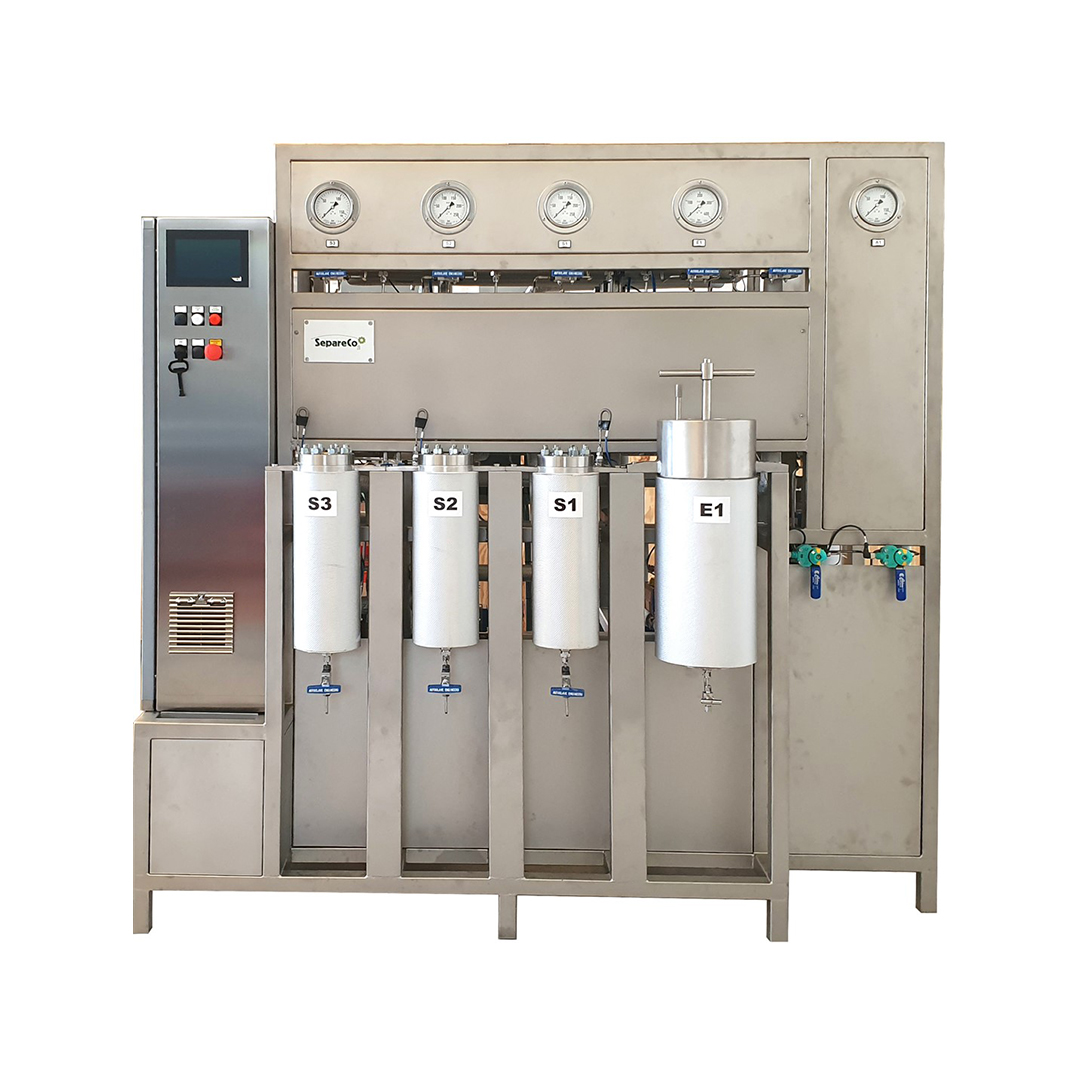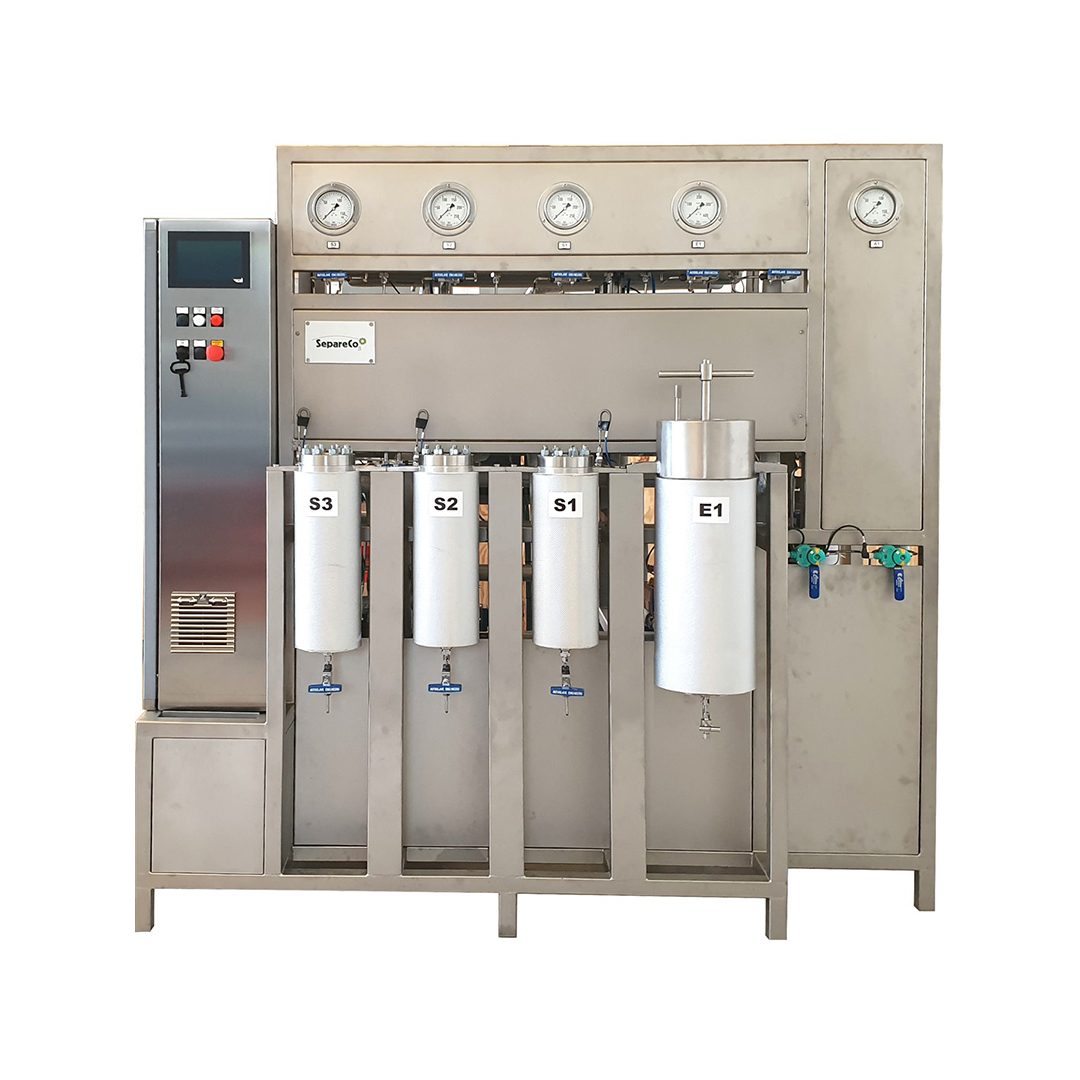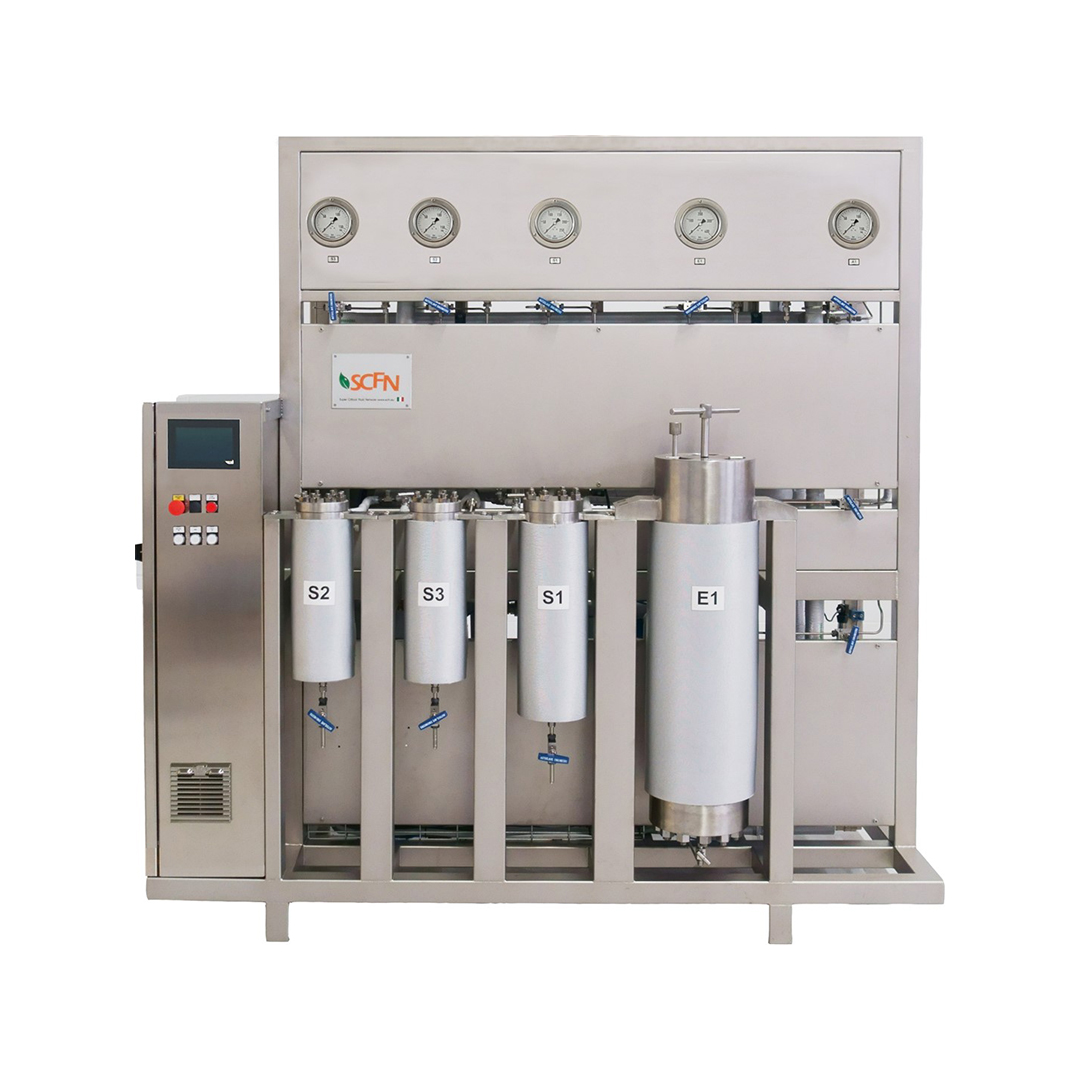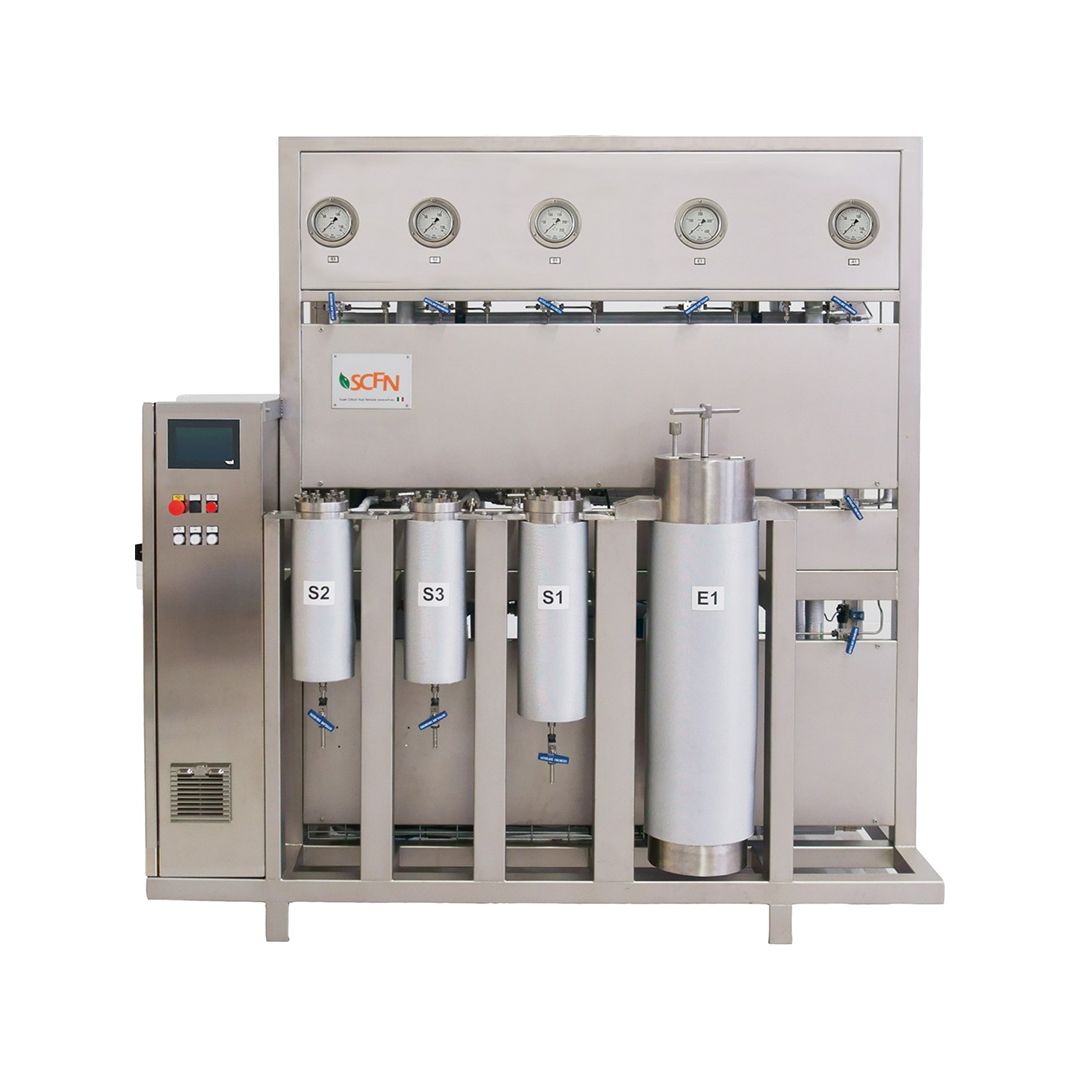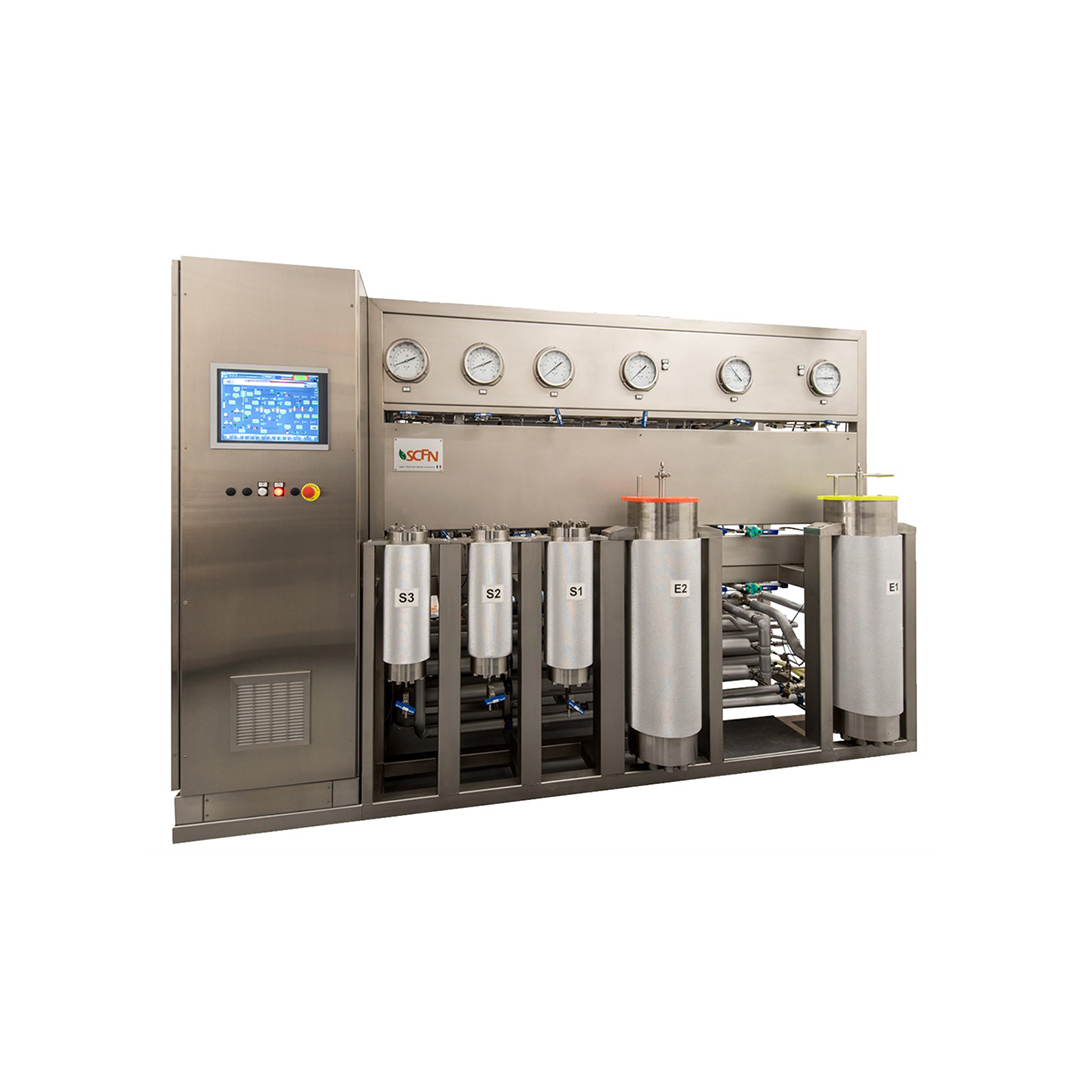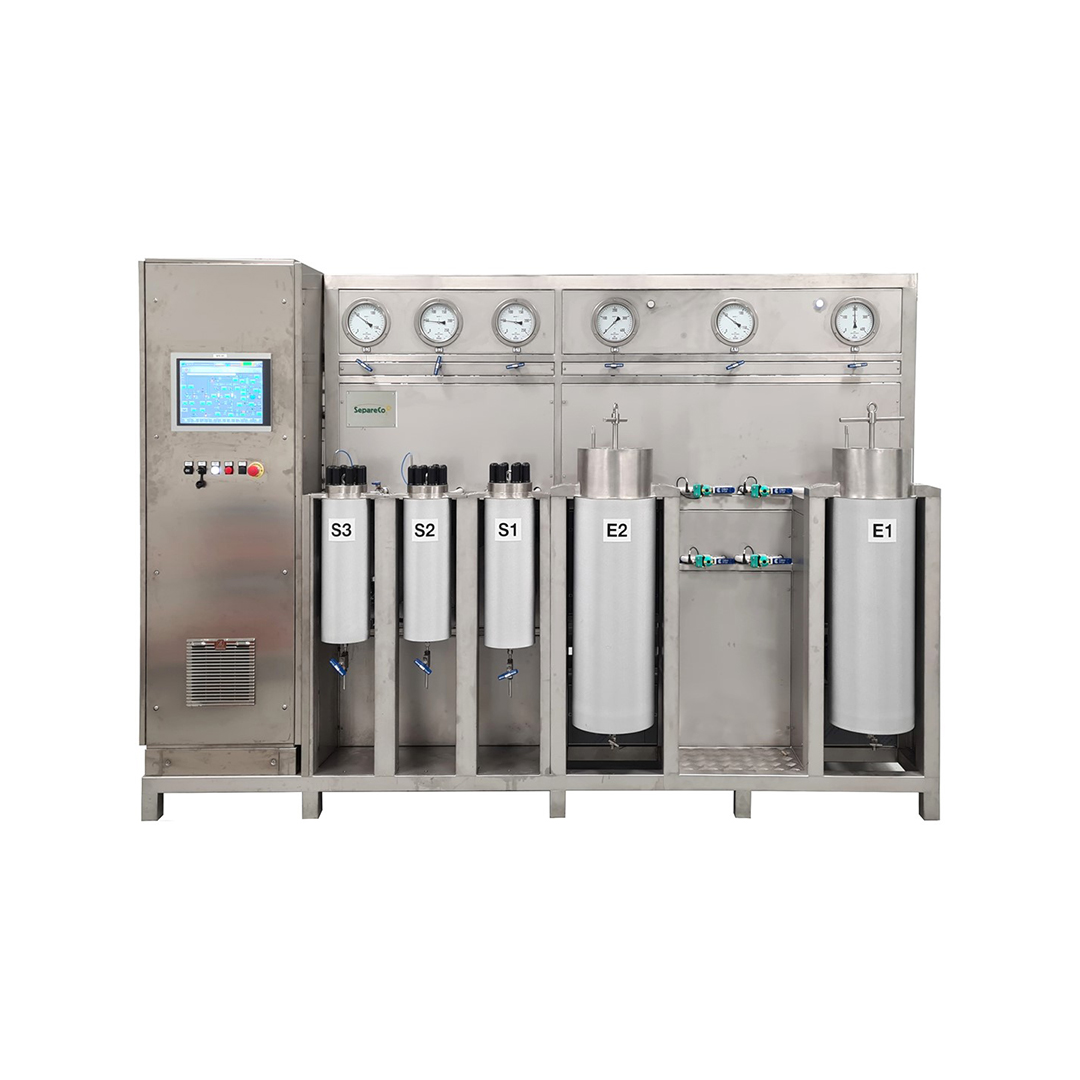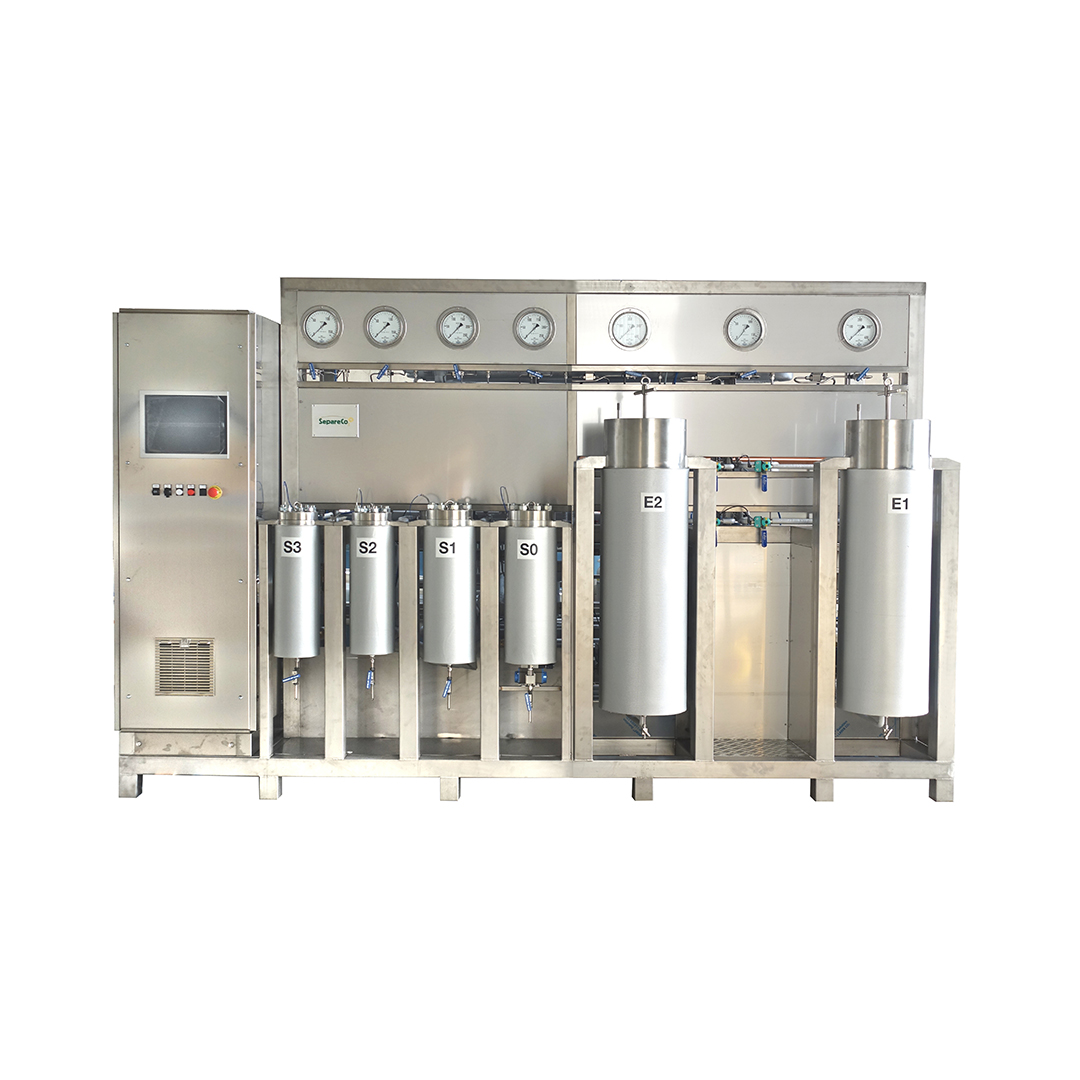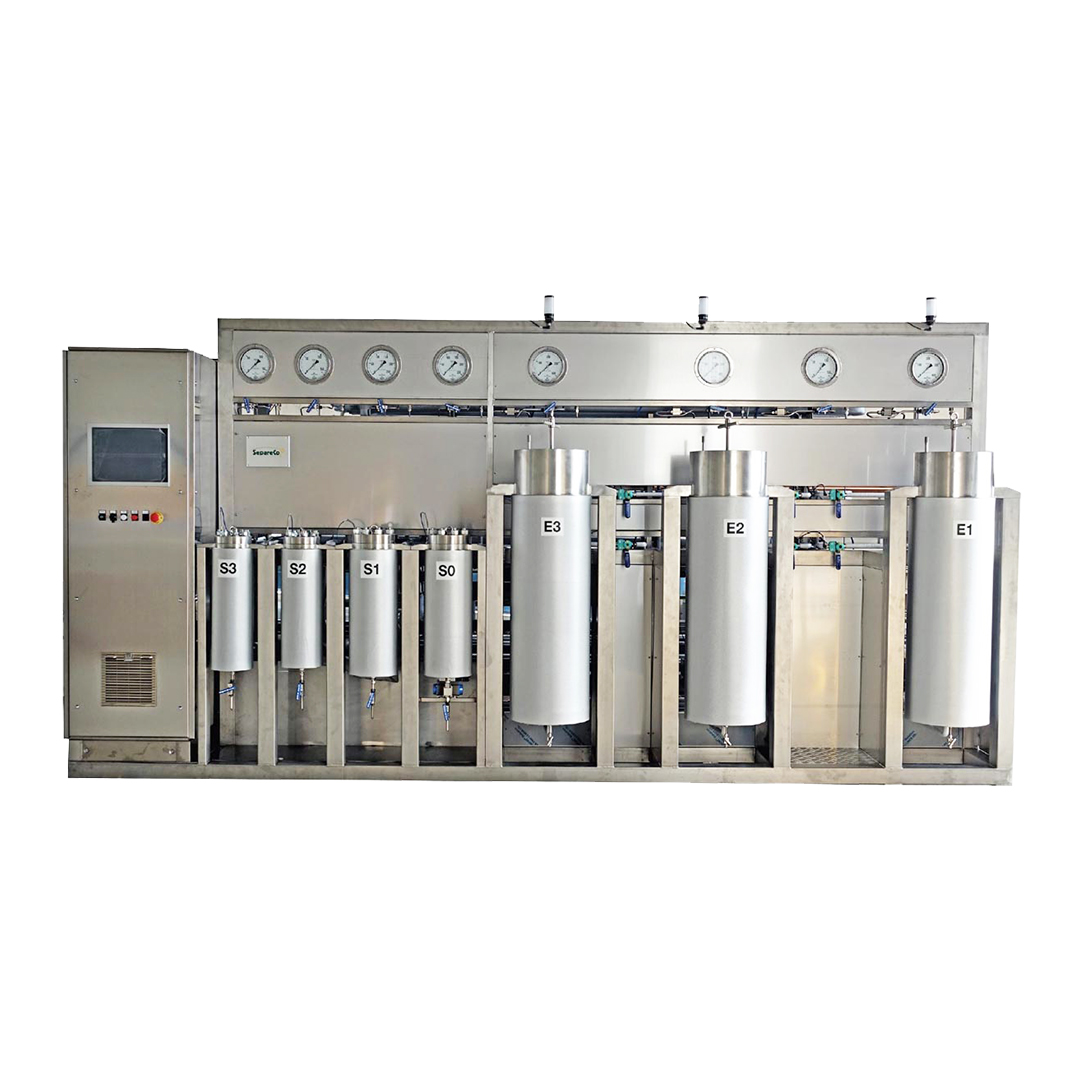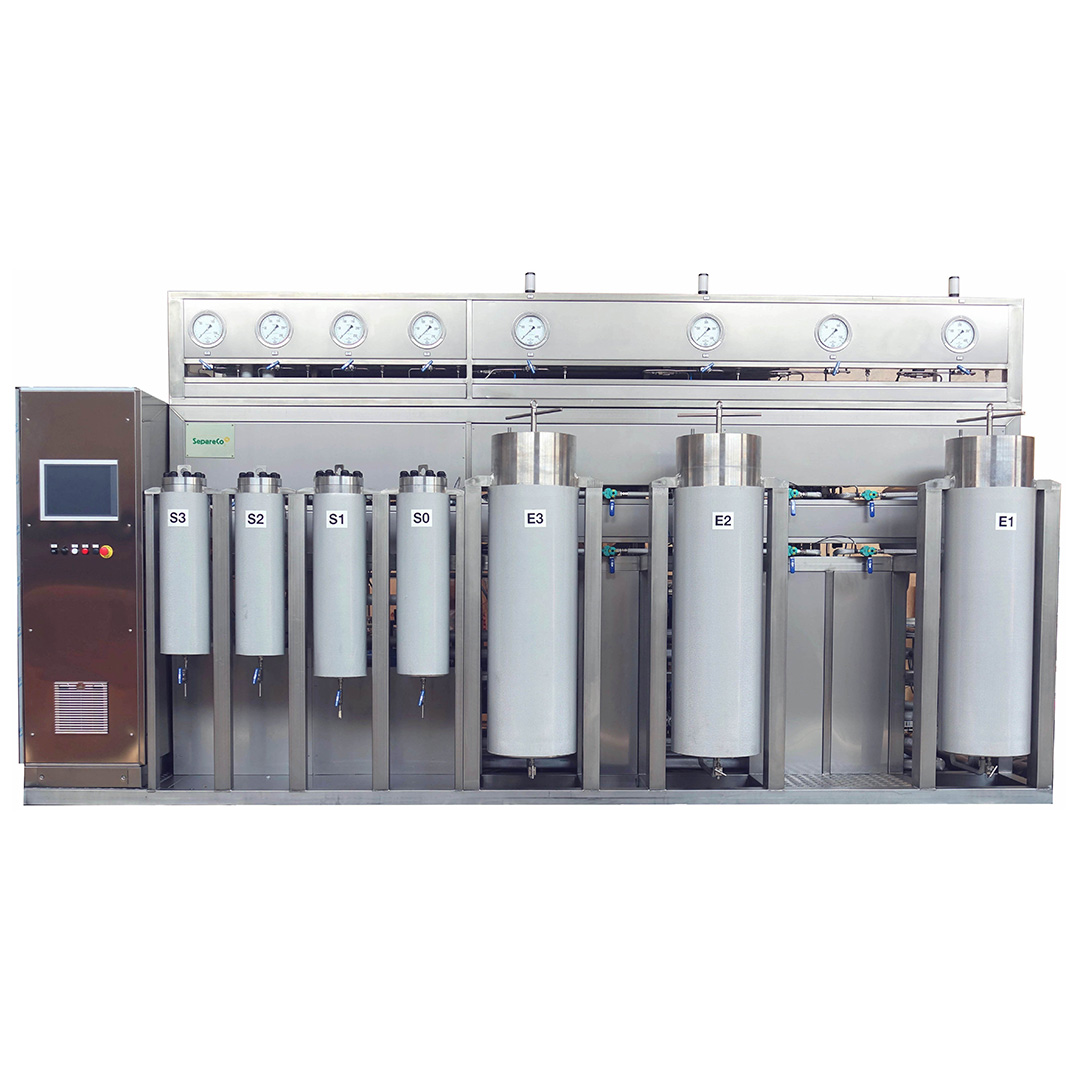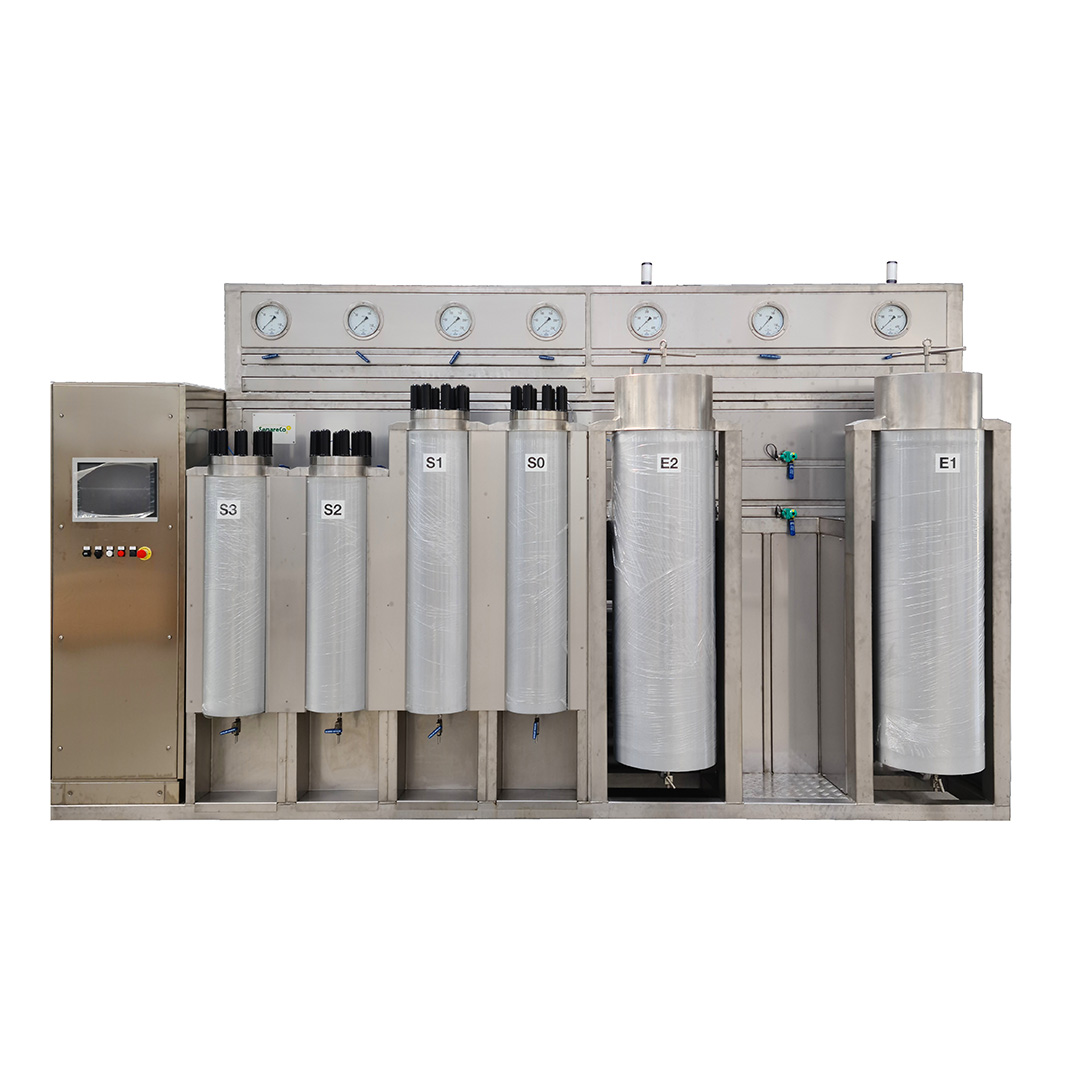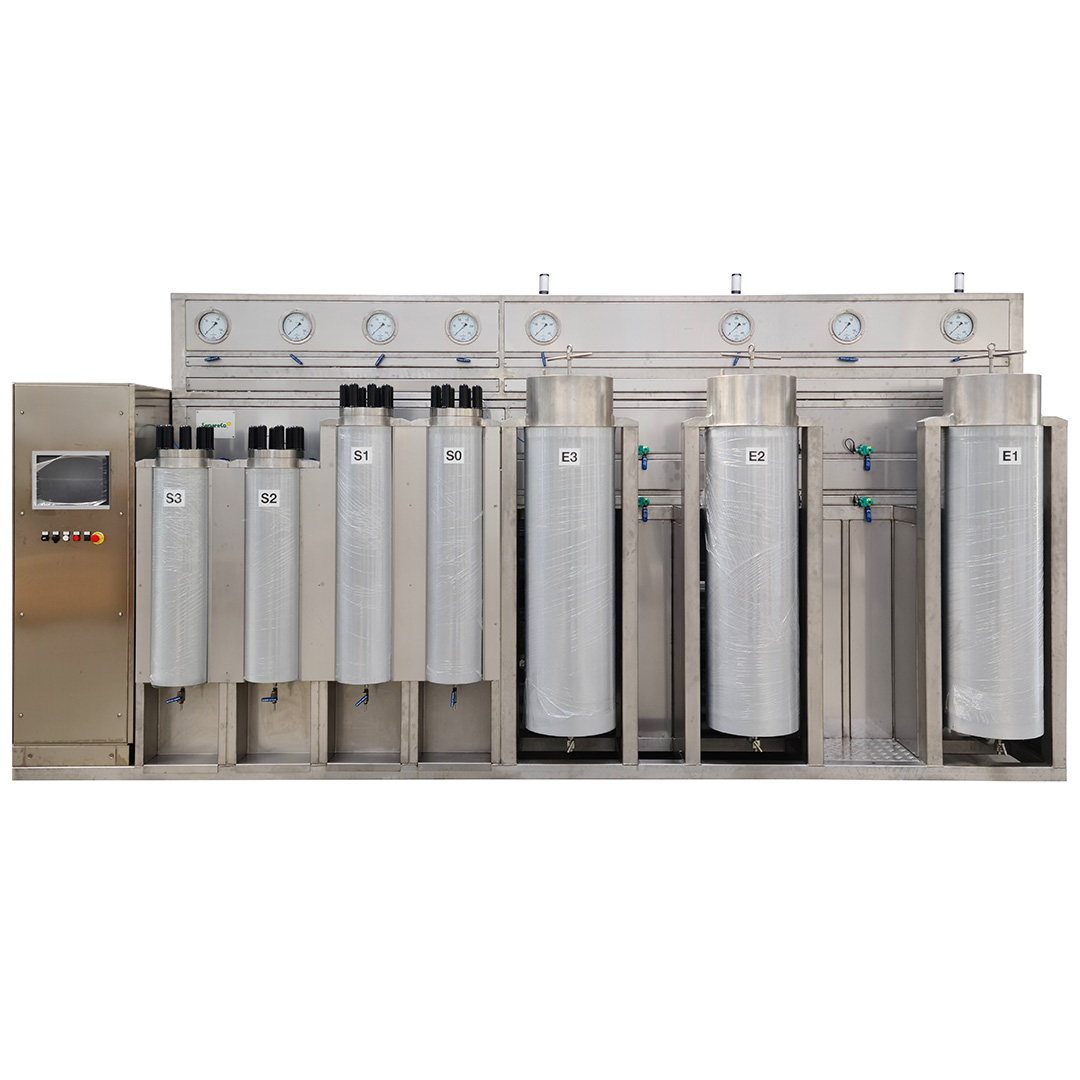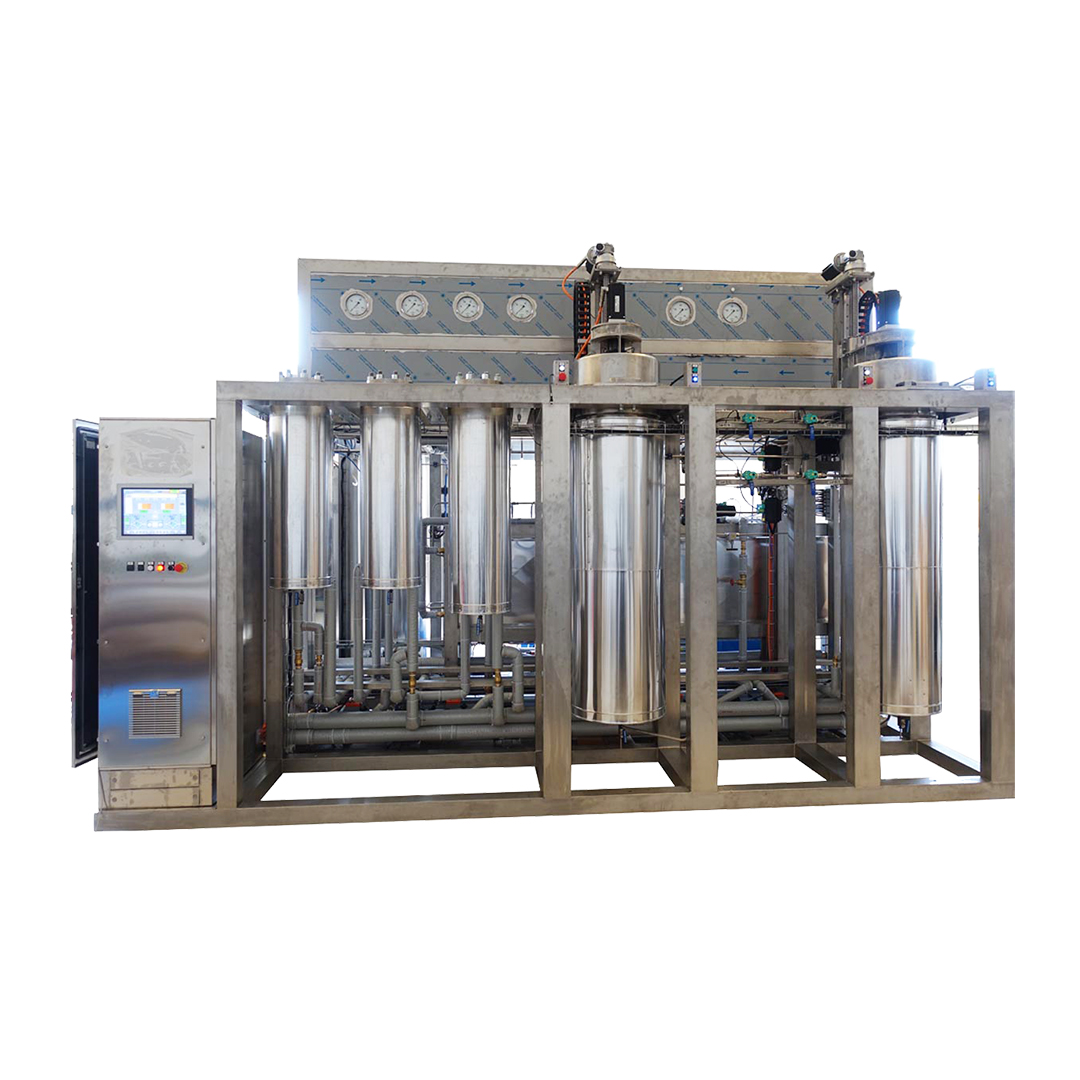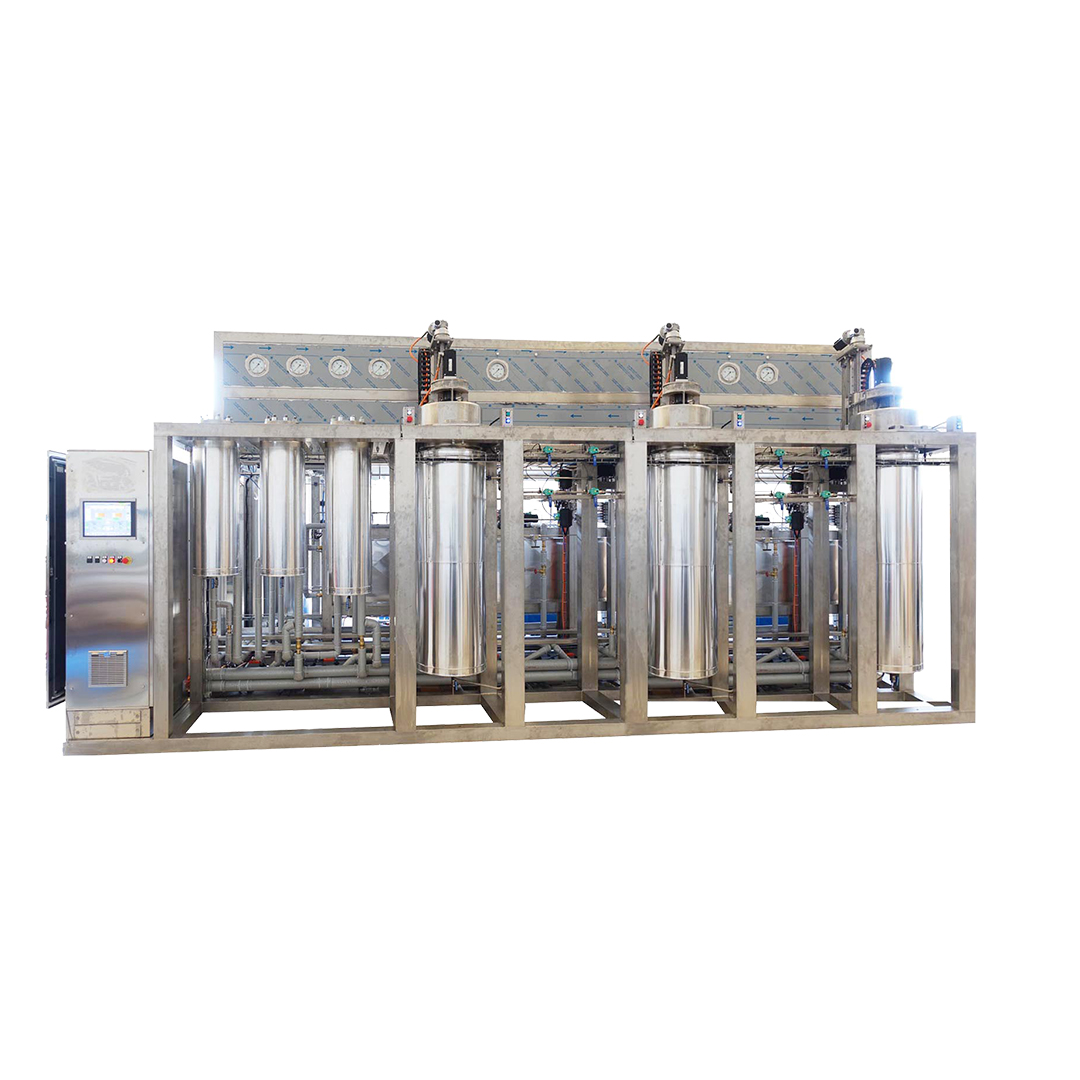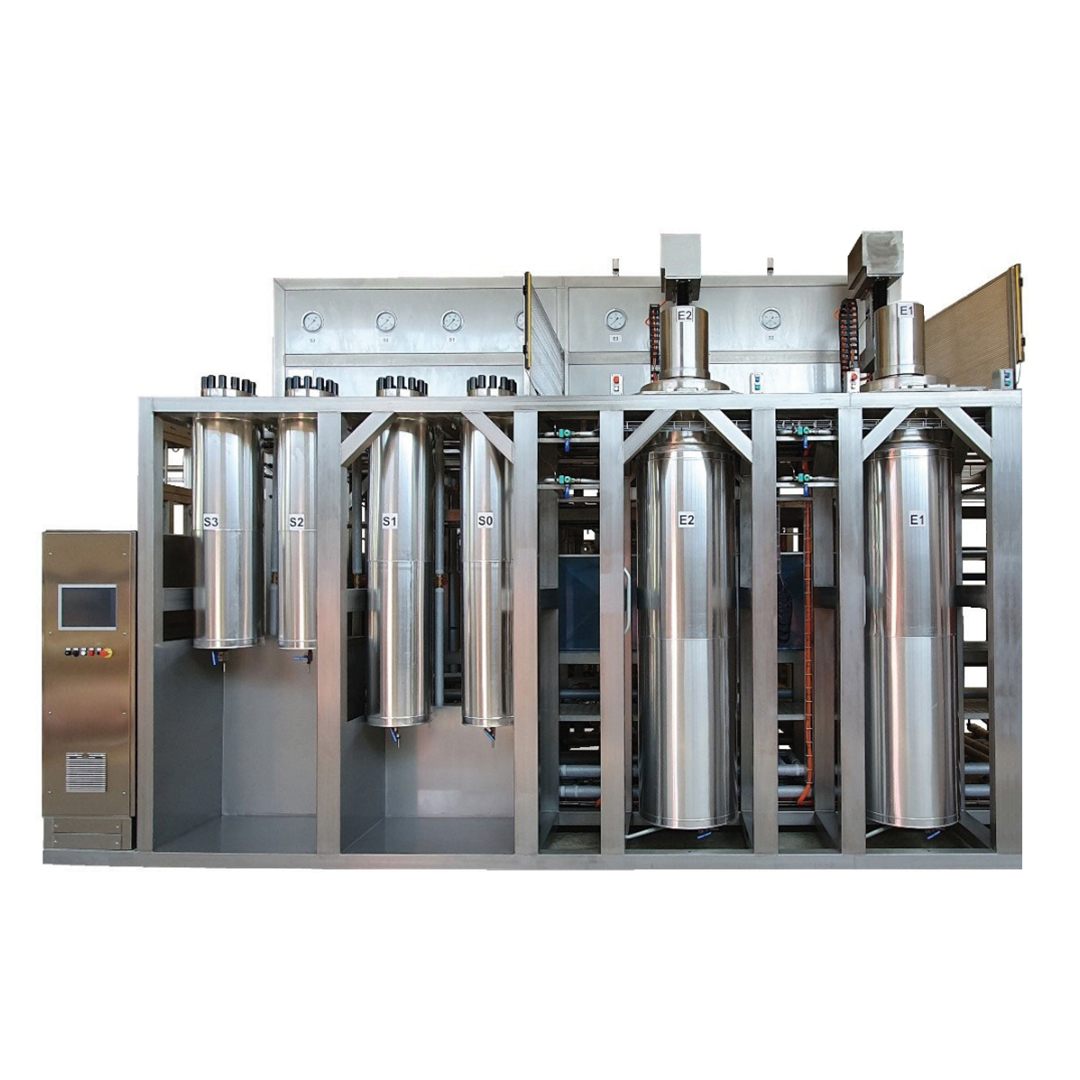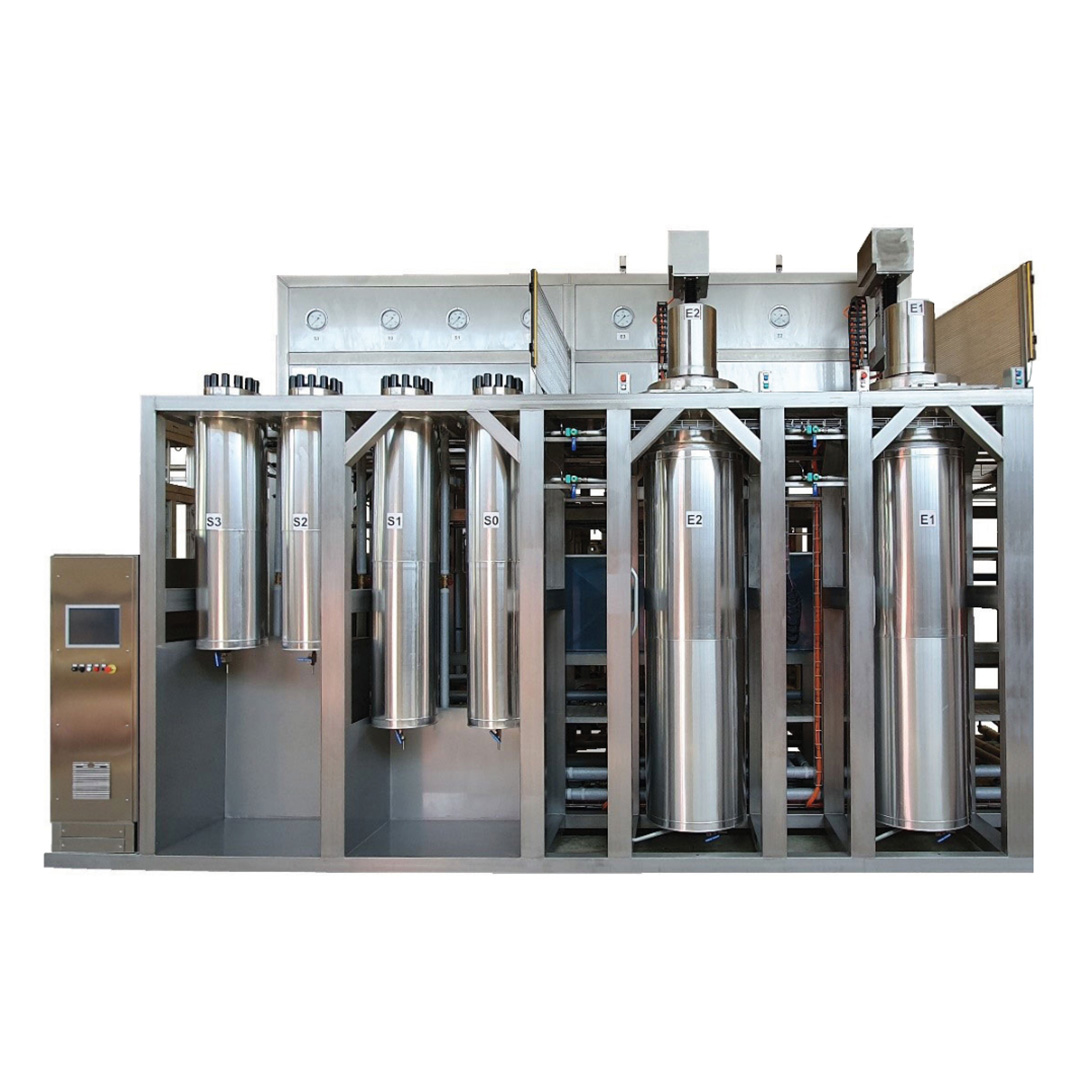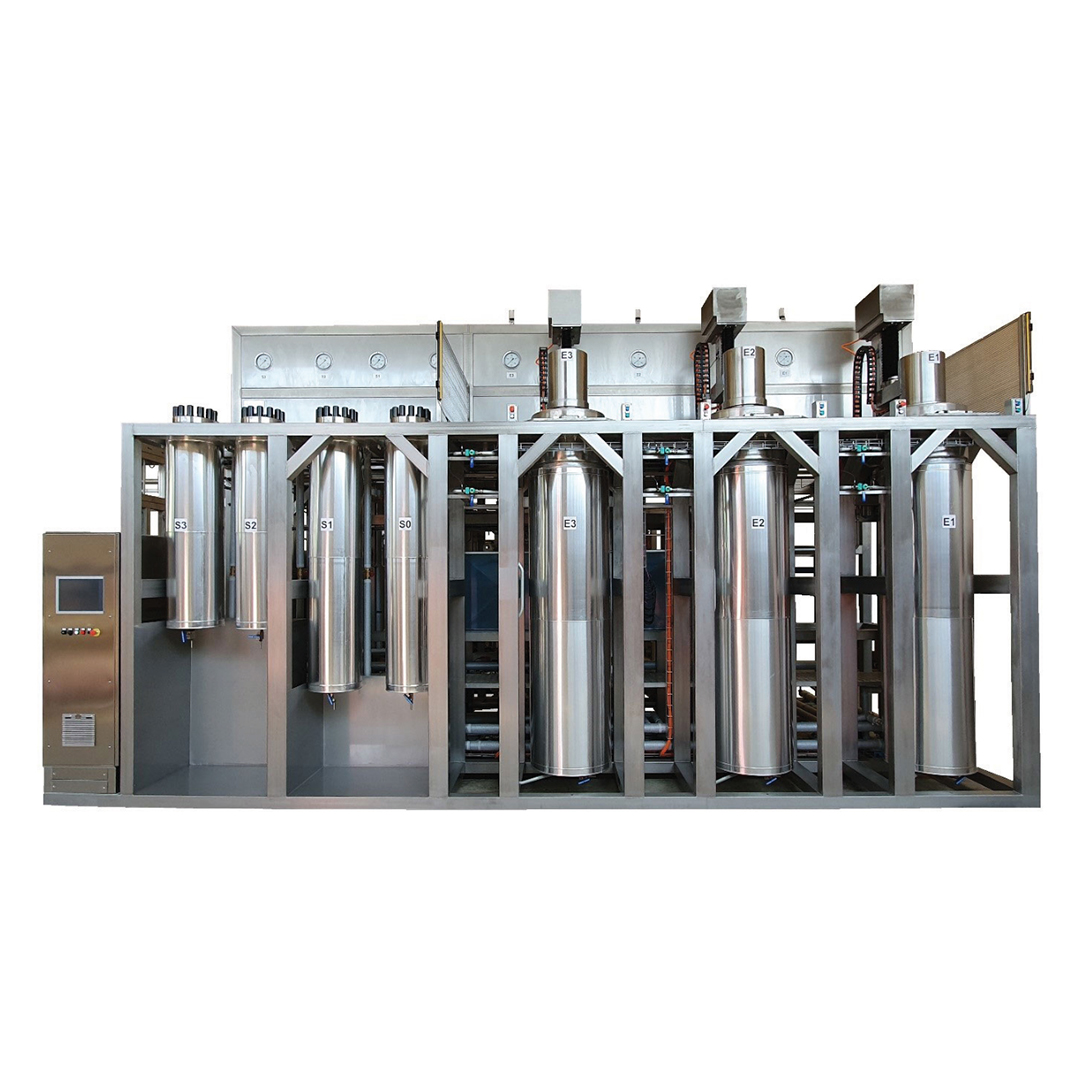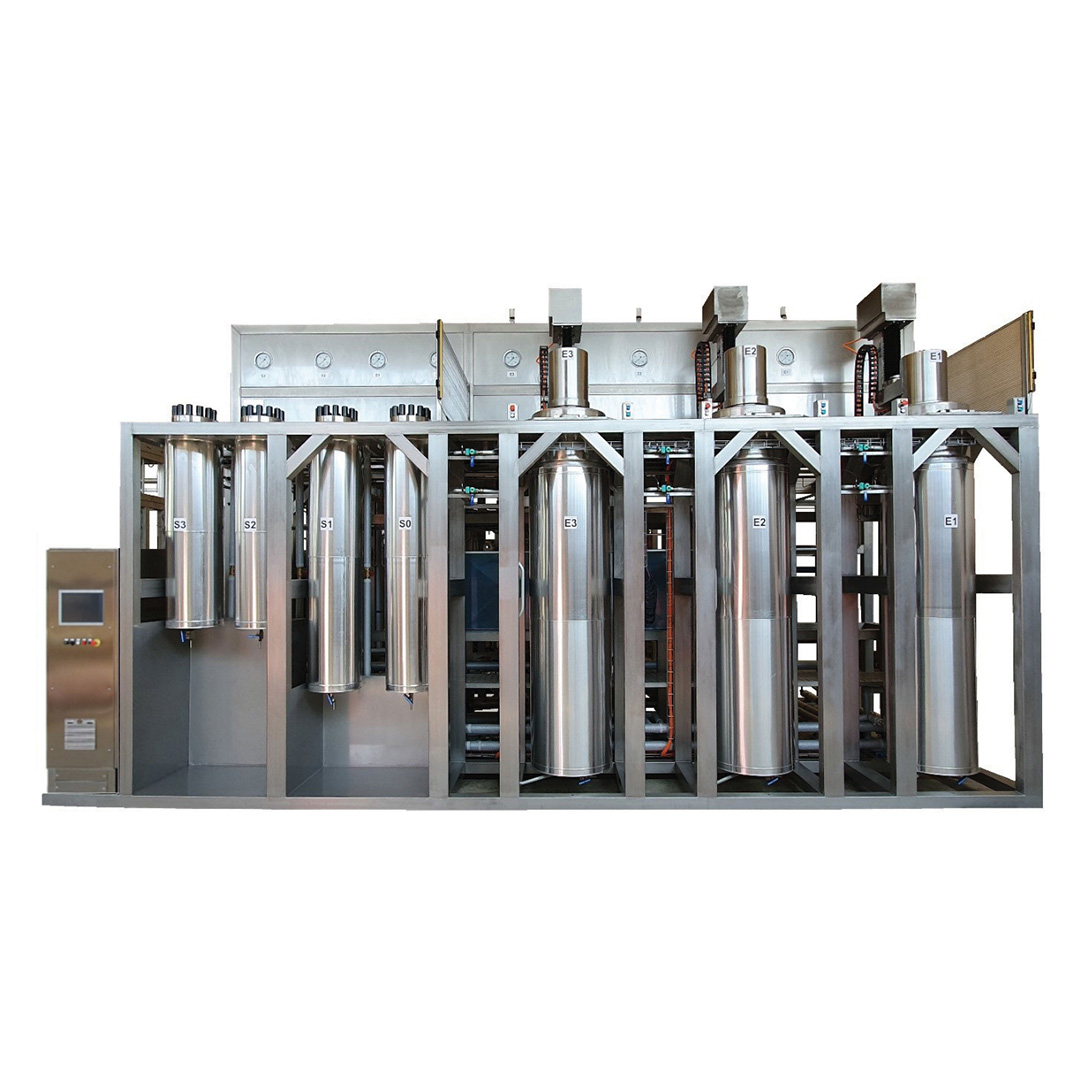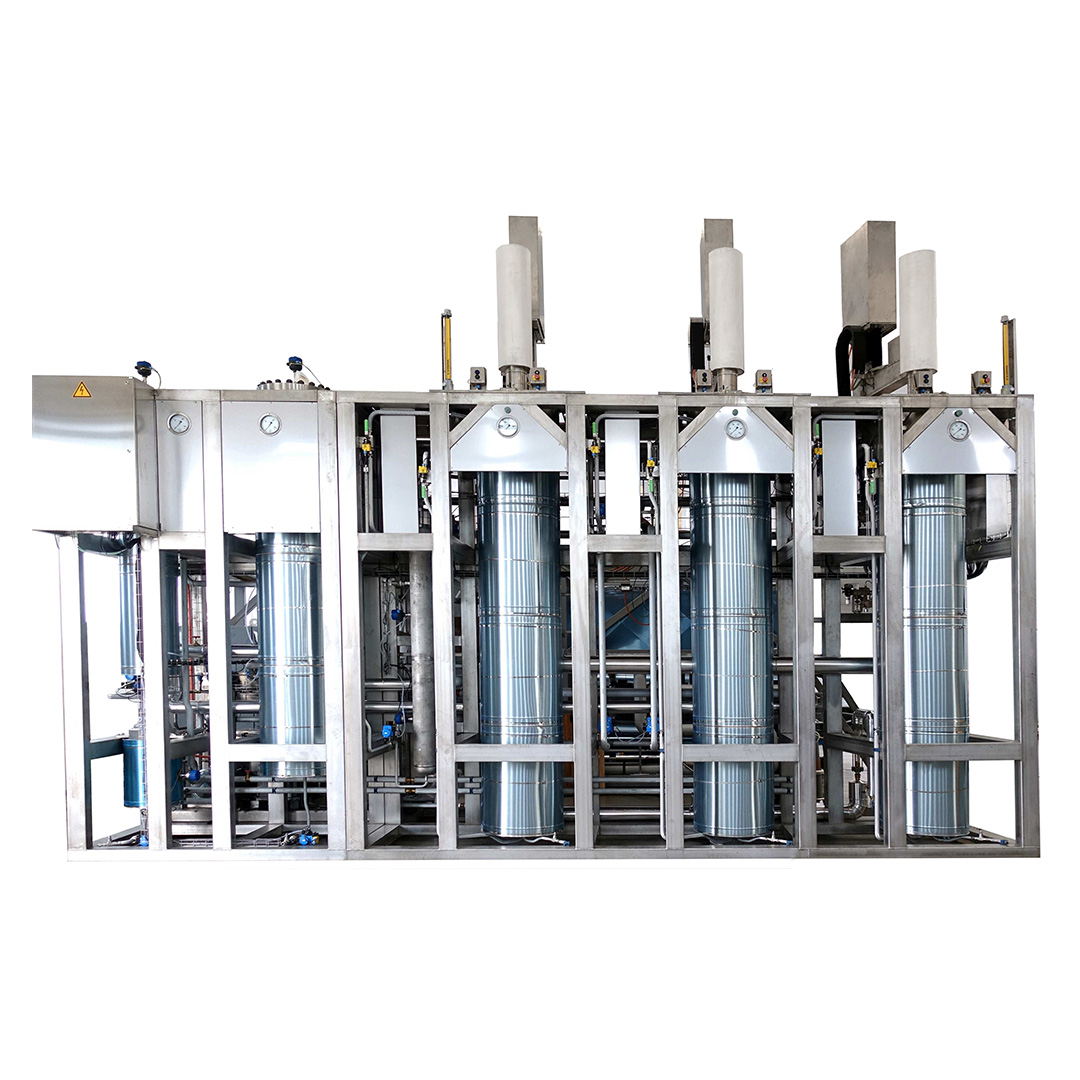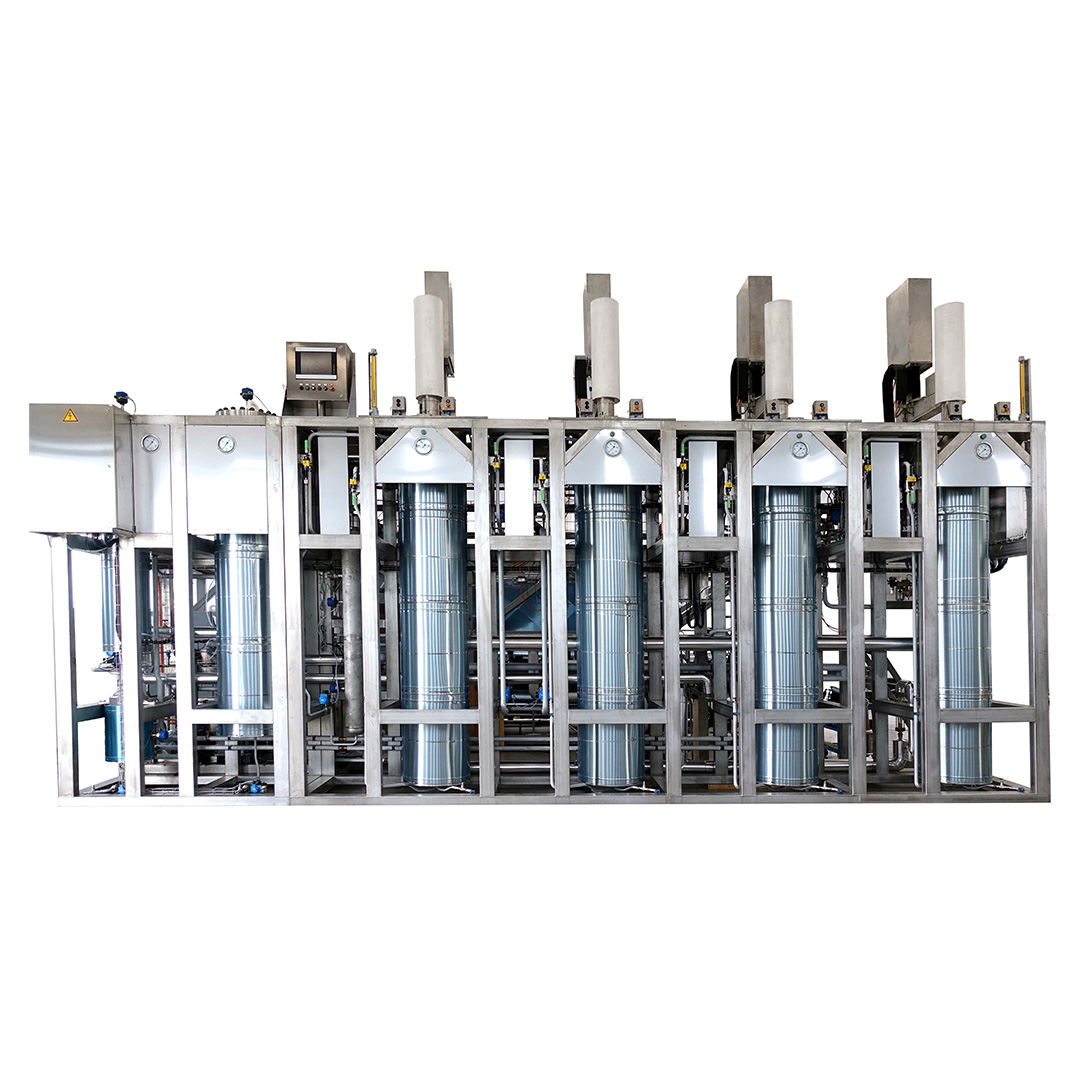Supercritical CO2 Extraction equipment
Filter products by family
View all systems or filter products by family
Supercritical CO2 Extraction Laboratory systems
Lab machines are designed to test new lots of material or new matrices extraction conditions, to be used in bigger extraction systems. Same software like all other extraction systems. From 1.7 to 12 liters extractor.
1.7 L Supercritical CO2 Extractor
2.7 L Supercritical CO2 Extractor
7 L Supercritical CO2 Extractor
12 L Supercritical CO2 Extractor
Supercritical CO2 Extraction Production systems
Production systems are designed for medium volumes of raw material. They are compact and easy to use. Their dimensions are design to fit any kind of extraction room, ISO8 or ISO7 included. From 7 to 73 liters extractor.
Dual 7 L Supercritical CO2 Extractor
Dual 12 L Supercritical CO2 Extractor
Dual 24 L Supercritical CO2 Extractor
Triple 24 L Supercritical CO2 Extractor
Dual 51 L Supercritical CO2 Extractor
Triple 51 L Supercritical CO2 Extractor
Dual 73 L Supercritical CO2 Extractor
Triple 73 L Supercritical CO2 Extractor
Supercritical CO2 Extraction Industrial systems
Industrial extraction systems are designed for large volumes of raw material. They are large in size but simple to use like all other systems. Stainless steel frame. From 100 to 4000 litres extractor.
Dual 120 L Supercritical CO2 Extractor
Triple 120 L Supercritical CO2 Extractor
Dual 240 L Supercritical CO2 Extractor
Dual 350 L Supercritical CO2 Extractor
Triple 240 L Supercritical CO2 Extractor
Triple 350 L Supercritical CO2 Extractor
Triple 580 L Supercritical CO2 Extractor
Quad 800 L Supercritical CO2 Extractor
We offer: more CERTIFICATIONS to guarantee more SAFETY and QUALITY – rigorous DESIGN, standard or based on URS*
Our certifications: TUV ISO9001:2015 – CE Europe – Apave PED – UL/CSA listed – ASME U stamp – CRN Canada – TSSA Approved – URS (User Requirement Specifications)
Supercritical CO2 extraction strategies
We offer many extraction solutions. Alongside the traditional system configuration that uses a single extractor, we have introduced the configuration with two and three extractors, the most requested.
There are a lot of differences between these supercritical CO2 extraction configurations:
- Single extractor: this configuration is widely used in labs for testing supercritical CO2 extraction conditions before starting industrial production. Very small laboratory systems (extractor volume from 50 to 1000 mL) are generally used for extract analysis but are not useful for deriving process conditions (pressure, temperature, flow rate, kinetics). Due to the small size these systems alter fluid dynamics, and lead to a bad result called the “downscaling effect”. For this reason, we have chosen not to build systems below 1.7 liters, as this is the minimum required volume to damp this effect and obtain reproducible process in industrial size systems.
Supercritical CO2 Laboratory systems are indispensable for testing new matrices to evaluate the conditions of solubility, residence time, particle size and humidity of the matrix before going into production. - Double extractor: this configuration was an important step towards greater process efficiency for supercritical CO2 extraction, but only when fully automated. In fact, only with automation is it possible to exploit the advantages of semi-continuous extraction, in which there are no dead times between one extraction and another (as happens with the single extractor configuration). One extractor is unloaded and reloaded while the other one is under extraction.
- Triple extractor: this configuration is the most used in large systems, as it considerably increases extraction performance, exploiting the advantages of overlapping process for supercritical CO2 extraction, +50% compared to the configuration with double extractor. This configuration requires a very high level of automation. This is why it is almost impossible to find them in production machines below 100 liters per extractor, but this is not the case here. Separeco, the only one on the market, has developed an innovative process automation that has made it possible to introduce this configuration also on production machines of 24, 51 and 73 liters extractor volume, keeping costs at a more than reasonable level, far lower than the benefits it can give. Separeco is among the few companies in the world to possess the technology for managing the extraction process with triple extractor.
Generally, Supercritical CO2 extraction equipment are offered with two separators. We do more than this.
We offer different configurations:
- Three separator configuration: this is our standard set up. All separators are controlled in temperature, but the first is also controlled in pressure. Having supercritical condition in the first separator in line offers enhanced separation performance. Different fractions are collected from each separator. This a great advantage for supercritical CO2 extraction.
- Four separator configuration: this is a special set up. With four separator is possible to address specific extract to different separators, to have unmixed extract collection at the end of the process. Also in this case all separators are controlled in temperature and the first is also controlled in pressure. Having supercritical condition in the first separator in line offers enhanced separation performance. Different fractions are collected from each separator.
We offer many different configuration and special solutions like the a)water trap, b) single, double or triple pressure control, c) full recirculation, d) quick cloverleaf opening system, e) CO2 reservoir tank with liquid level detector, f) Corilois flow meters, g) CO2 and co-solvent high pressure pumps, h) multi-process software.
Ask for your specific supercritical CO2 extraction configuration.

Supercritcal CO2 extraction crucial parameters
Supercritical fluid extraction applies to solid matrices, the acronym of which is SFE (Supercritical Fluid Extraction), in our case supercritical CO2 extraction. In the case of liquid matrices, we are not talking about extraction but about fractionation, the acronym of which is SFF (Supercritical Fluid Fractionation).
First, let’s analyze the general aspects that describe the supercritical CO2 extraction principles. Extraction from solid matrices with liquid/supercritical solvents, called solid-liquid extraction, allows the desired compounds to be separated from the solid raw material, generally of botanical origin.
Generally, it is necessary to identify the most suitable solvent for the target compounds of the extraction. In our case it will be supercritical CO2. The solvent will occupy all possible spaces and then spread throughout the matrix. The supercritical CO2 extraction process then begins, generally by diffusion, in which the desired elements pass into the solvent, becoming concentrated.
The conditions or parameters of the process depend on the compounds of interest that are intended to be extracted from the chosen matrix. The supercritical CO2 extraction machine must be equipped with automation software that allows you to enter all these process parameters. A good machine must be able to load these parameters into the process recipe. Each matrix will have one or more process recipes based on the compounds that need to be extracted.
To make a good supecritical CO2 extraction you need to know:
1) The optimal pair of pressure/temperature to solubilize the target compound.
2) The flow rate of the CO2 pump and, if requested, the flow rate of the cosolvent pump.
3) The characteristics of the raw material

